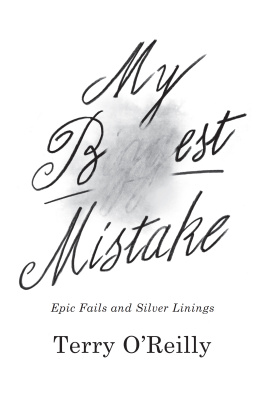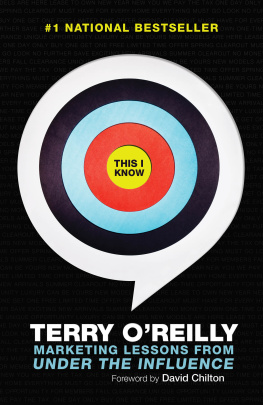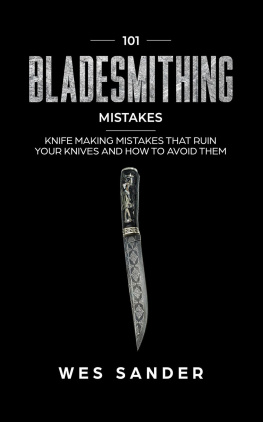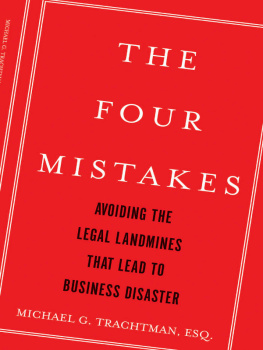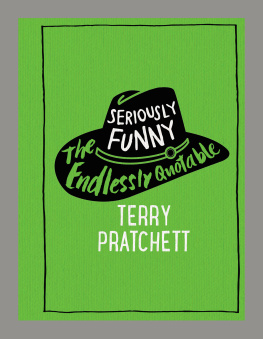Dedicated to the worst boss I ever had
who taught me the best lesson:
how not to do it.
Contents
B ack in 2004, I was working with Denny Doherty in a recording studio. He was narrating a 265-episode radio series our company had developed to celebrate the fortieth anniversary of the Beatles landing in North America. As you may know, Denny was one of the founding members of the iconic group the Mamas and the Papas. Born in Halifax, Denny formed his first band at age nineteen, then left Canada in 1964 to seek fame and fortune in the folk scene in New York. As recounted in the Mamas and the Papas hit song Creeque Alley, guitarist (and fellow Canuck) Zal Yanovsky and singer Denny would pass the hat after performing numbers in Greenwich Village. Soon, Denny met Cass Elliot, then the two of them joined up with married folk singers Michelle and John Phillips in 1965.
The rest is California dreaming.
Working with Denny was always fun because he had the best stories to tell between takes. He was part of the sixties pop, rock and folk scene and had crossed paths with everyone from Bob Dylan to my cherished Beatles. But I remember one story in particular. He told me about John finding out he had conducted an affair with Michelle Phillips. To punish Denny before actually confronting him about it, John had him sing a new song titled I Saw Her Again. The lyrics were about sneaking around to see a woman you shouldnt be seeing. As he made Denny sing it over and over again in the studio, John just glared at Denny through the glass, waiting for him to get the message.
While recording the final vocal, Denny made a mistake. At around the 2:43 mark, he came in at the wrong beat. He sang, I saw her, then stopped, realized his mistake, waited a second, then continued with the chorus. When he finished the take, he said, Sorry about that mistake, you can edit it out. But both John and producer Lou Adler said, No, we wontwe loved it, and kept it in the final mix.
That was interesting to me. It was always my favourite Mamas and Papas song and that little moment from Dennythat tiny mistakeis my favourite moment in the song. I wait for it every time I hear it. When Denny told me that story, we talked about other mistakes in popular songs that turned out to be interesting moments. Like when Sting laughs at the start of Roxanne because he tripped on a piano while he made his way to the microphone. Or when Paul McCartney whispers fucking hell at the 2:53 mark of Hey Jude. Or the time Sun Records producer Sam Phillips was recording Time Has Made a Change with Jimmy DeBerry when the microphones picked up the shrill sound of a telephone ringing in the outer officeand Phillips left it in the record because the mistake just felt right.
Sam Phillips chased something he called perfect imperfection. He felt mistakes in a great thing were infinitely better than perfection in a good thing. Paul Simon once said he was more intrigued by an interesting mistake than a safe move. Im with Sam and Simon on that one. Back when I directed commercials, I always chose the take that felt best, rarely the perfect one.
The concept of meaningful mistakes that actually made something better was intriguing. My mind raced through all the stories Id collected over the years, as well as the stories Id told on my CBC radio show about mistakes that led to multimillion-dollar brands. I was particularly interested in finding two types of stories. First, stories where someone had made a catastrophic decision, only to discover it was the best thing that ever happened to them. Second, stories where people had made a tiny, inadvertent mistake that was just a little left of right but that led to a breakthrough. In the former, the people featured in this book went through an almost violent life change, losing their jobs, their companies and often their credibilityonly to discover an even better life on the other shore. In the latter, the people or companies made a mistake that seemed small, almost insignificantyet it would be the beginning of famous brands or legendary bands or groundbreaking art. In one instance, it saved lives.
Churchill once wrote, You never can tell whether bad luck may not after all turn out to be good luck... when you make some great mistake, it may very easily serve you better than the best-advised decision.
Sir Winston was right.
A raging forest fire often leads to beautiful green growth sprouting up through the ashes.
W hen Steven Spielberg was given the green light to bring Peter Benchleys novel Jaws to the big screen, he was just twenty-eight years old. He had made only one movie so far, titled The Sugarland Express. Prior to that, he had directed a few television shows like Night Gallery and Columbo and had done a few made-for-TV movies. One of those TV movies, Duel, was the dry run that would eventually land him Jaws. It was a story of a man being pursued by a mysterious and menacing eighteen-wheel tanker truck for no apparent reason. When Spielberg put himself up for the directing job for Jaws, he told the producers to watch Duel because it, too, was a story of someone being hunted by a powerful and mysterious force. Duel imparted other lessons to the young director. For instance, it contains a scene where Spielberg is mistakenly reflected in the glass of a phone booth. As he later said in an interview on Inside the Actors Studio, when Duel was shown in Europe, there were, in fact, eighteen different instances when Spielberg was visible because of the change in aspect ratio for the theatrical release.
Live and learn.
When planning Jaws, Spielberg rejected the idea of using miniatures and shooting in Hollywood water tanks. With youthful bravado, he insisted on creating a full-scale mechanical shark and shooting in the ocean. He wanted realism. He asked his production designer, Joe Alves, to design a fully operational animatronic shark. He explicitly wanted a full-scale twenty-five-foot beast that could move and swim and attack like a real shark. He wanted the eyes to roll back, the gill slits to breathe and the jaws to work. The request was unprecedented, even by Hollywood standards.
Alves began with sketches of the shark based on Benchleys descriptions in the book. Then he sketched different actions the shark would have to perform in the storyline. Next, Alves drew a schematic cross-section of the shark showing the mechanics and pneumatic hoses required to manipulate the massive creation. When he approached special effects experts with his plan, they all said it couldnt be done. All except for one. His name was Robert Mattey, and he was convinced he could build it. As it turned out, Mattey couldnt build one shark to achieve everything Spielberg wanted, so he had to build three sharks. Each one had a steel skeleton, hydraulics to open and close its mouth and air-powered mechanisms to make the various body parts move. One shark moved left-to-right with its hidden left side exposing the vast array of hoses, wiring and mechanics, one moved right-to-left with an open right side and one fully skinned shark was attached to an adjustable arm on a twelve-ton, sixty-foot-long submersible steel trolley that moved back and forth on rails mounted on the sea floor. To achieve the realistic motion of a shark, the main model would require a barge and fourteen operators to control all the moving parts via a set of three-hundred-foot pneumatic hoses. It also required scuba divers to manipulate the other end of the shark, additional frogmen filming from underwater and a second barge for the camera and crewall of which floated alongside Quints hero boat, the Orca (named after the only natural enemy of the great white shark). Tests done in a freshwater tank at Universal Studios were tricky but successful. Spielberg was optimistic. He nicknamed the 1.2-ton shark Bruce, after his lawyer, Bruce Ramer.

